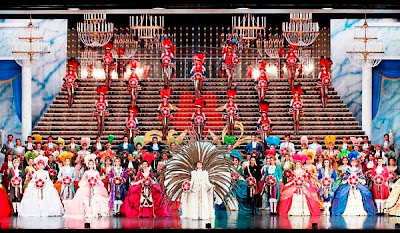A very British mystery
I've been pretty intimately acquainted with British English for a while now, thanks to Anna and my many friends from the U.K. over the years and all the British TV I've watched. I've read a lot of books by authors from the U.K. as well, not to mention I've been staying here since October.
Despite all that, I still occasionally come across words or phrases that I don't understand. Here are a few of the highlights:
Despite all that, I still occasionally come across words or phrases that I don't understand. Here are a few of the highlights:
- Mingin' (adjective.) "I think we should get rid of that sofa, it's a bit mingin." (American English tranlsation: "it's a bit gross".)
- Bob's Your Uncle (exclamation?). You've just managed to fix a broken bicycle and you exclaim, "Bob's your uncle!" (or something like that.) (American English translation: "there you go".) The origin of the phrase is pretty funny, read about it here.
- Naff (adjective.) "That gold clock is so naff." (American English translation: "so tacky.")
- Offy (noun, short for off license.) "I'll just stop in the offy for some booze on the way home." (American English translation: "stop in the liquor store".)
- Jammy Cow (noun.) Your friend has just won tickets to a concert so you say "You jammy cow!" (American English translation: "You lucky devil!") Note: "jammy" can be used on its own to mean lucky.
- Full of Beans (idiom.) You wake up groggy and your friend sarcastically says, "You look full of beans today." (American English translation: "You look perky today.")
- All right (adjective.) You answer the phone and your friend says, "Hey, you all right?" (American English translation: "Hey, how are you?") Note: this one doesn't seem so strange, but because it's subtle it's confusing. In American English, we'd only ask that if something was clearly wrong with someone - like they had just tripped and we're checking to see if they're okay.
So here's the mystery: why so many words like mingin, naff and jammy, that sound like they were invented by a group of 5 year olds? I say this with the greatest love and affection for my British friends, of course, but so many British slang words just sound like something Dr. Seuss might have come up with.
For example, take these town names (yes, these are actual towns):
- Dumbleton
- Mumbles (a headland in Wales)
- Pucklechurch
- Didling
- Tolpuddle
- Boggy Bottom
- Ardfork
- Giggleswick
- Upton Snodsbury
Admittedly, we've got some weird ones in the U.S. as well - Boring, Oregon and Dead Horse, Alaska come to mind - but they don't seem to be as commonplace.
And then there's the issue of clothes, which are all backward to what we call things in the States.
American English
|
British English
|
tank top
|
T-shirt or vest-top
|
vest
|
waistcoat
|
sweater
|
jumper
|
suspenders
|
braces
|
garters (the sexy ones that hold stockings)
|
suspenders
|
a thing that holds up old guys’ socks
|
garters
|
pants
|
trousers
|
underwear
|
pants
|
So much confusion. How did this happen? How did our lexicons diverge so much?? Will we ever be able to overcome this great language divide???
(Well, yes. It's really not that hard.)


Comments
Post a Comment